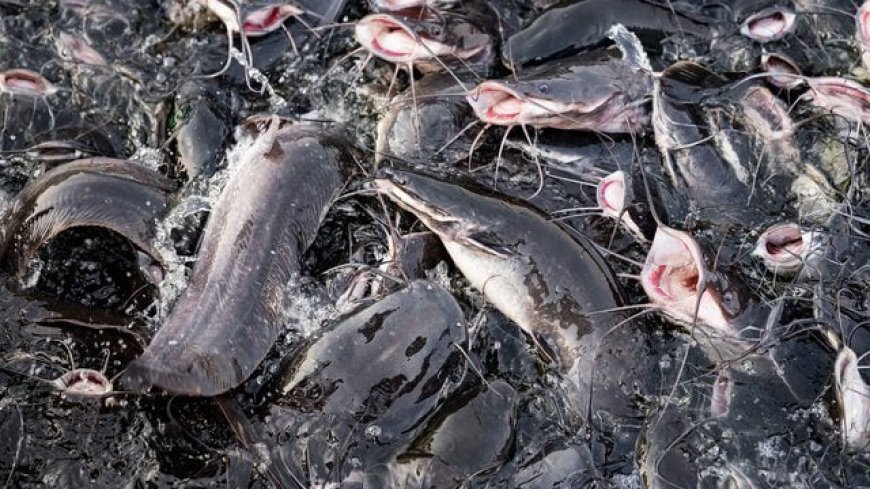Nasarawa catfish farmers lament low profits, blame middlemen

Some catfish farmers in the Anguwa Tiv community, Ado, Nasarawa, have expressed concern that middlemen make more profit than those involved in actual fish production
The farmers told the News Agency of Nigeria in separate interviews on Sunday in Karu Local Government Area that the dominance of intermediaries in the fish market was making it difficult for them to earn fair returns on their investments.
They explained that middlemen often dictate prices, leaving farmers at the mercy of exploitative market forces despite the rising cost of fish feed, transportation, and maintenance of ponds.
A catfish farmer, Christopher Ewalefo, said farmers were “suffering silently” because middlemen control the market chain and reap most of the profits.
He said the practice forces farmers to face high costs, low returns, and, in some cases, fraud.
“People hardly come to the farm to buy fish; they go to the market.
“Many don’t even know their way to the farms, so middlemen capitalise on this to make more profits,” he said.
Ewalefo explained that middlemen often flood the market during the rainy season, artificially lowering prices through oversupply.
He said they then buy at cheaper rates and resell at high prices when demand rises, leaving farmers at a loss.
He said the only sustainable way forward was for farmers to reduce reliance on intermediaries by adding value to their fish through processing, packaging, and selling directly to consumers, hotels, and restaurants.
Another catfish farmer, Solomon Uduka, said that while middlemen had served as intermediaries for years, many now exploit farmers rather than support them.
“Farmers place so much trust in middlemen, which I consider risky.
“Once they buy at a cheaper price from farmers, they resell to consumers at an outrageous price, thereby making more profits than the farmers.
“As a farmer, imagine how much you lose when you sell per kilo of fish for N1,800 to N1,900, and middlemen resell at N2,500 to N3,000,” Uduka said.
He advised catfish farmers to find potential customers through various channels, including social media platforms, instead of depending entirely on middlemen.
A catfish farmer in Karu, Magdalen Opoki, said the situation had forced many farmers to remain poor despite their efforts and heavy investment in production.
“We face high costs of production and put in so much effort to boost output, but in the end, we experience unfair prices from middlemen.
“The real profit goes to the middlemen who buy farm produce in bulk at discounted prices, especially during the rainy season when consumers prefer river catfish to pond-trained catfish, “she said.
Opoki advised farmers to establish a structured pricing mechanism that could help ensure fair prices between farmers and middlemen to prevent exploitation.
Elizabeth Aonodongu, another farmer, acknowledged that although some middlemen could be exploitative, they also play an important role in connecting farmers to markets.
“While some middlemen may engage in dubious business practices, they also alleviate some of the stress farmers face, allowing them to focus on production and increase efficiency.
It’s a mutually beneficial relationship, as middlemen need farmers, and farmers need them,” she said.
She added that farmers’ desperation to sell quickly often makes them vulnerable to unfair deals, giving middlemen the upper hand in negotiations.
“The presence of middlemen has discouraged genuine investors from coming into the fish business because they take away the bulk of the profit,” she said.
Aonodongu urged fish farmers to form strong cooperative societies or market unions that can regulate prices, monitor market activities, and protect the interests of members.
“This will help penalise offenders who violate agreed trade rules and ensure fairness in the system,” she added.
The farmers collectively appealed to relevant government agencies to support policies that protect producers’ interests, enhance value addition, and promote fair trade practices in Nigeria’s aquaculture sector.

 admin
admin 


